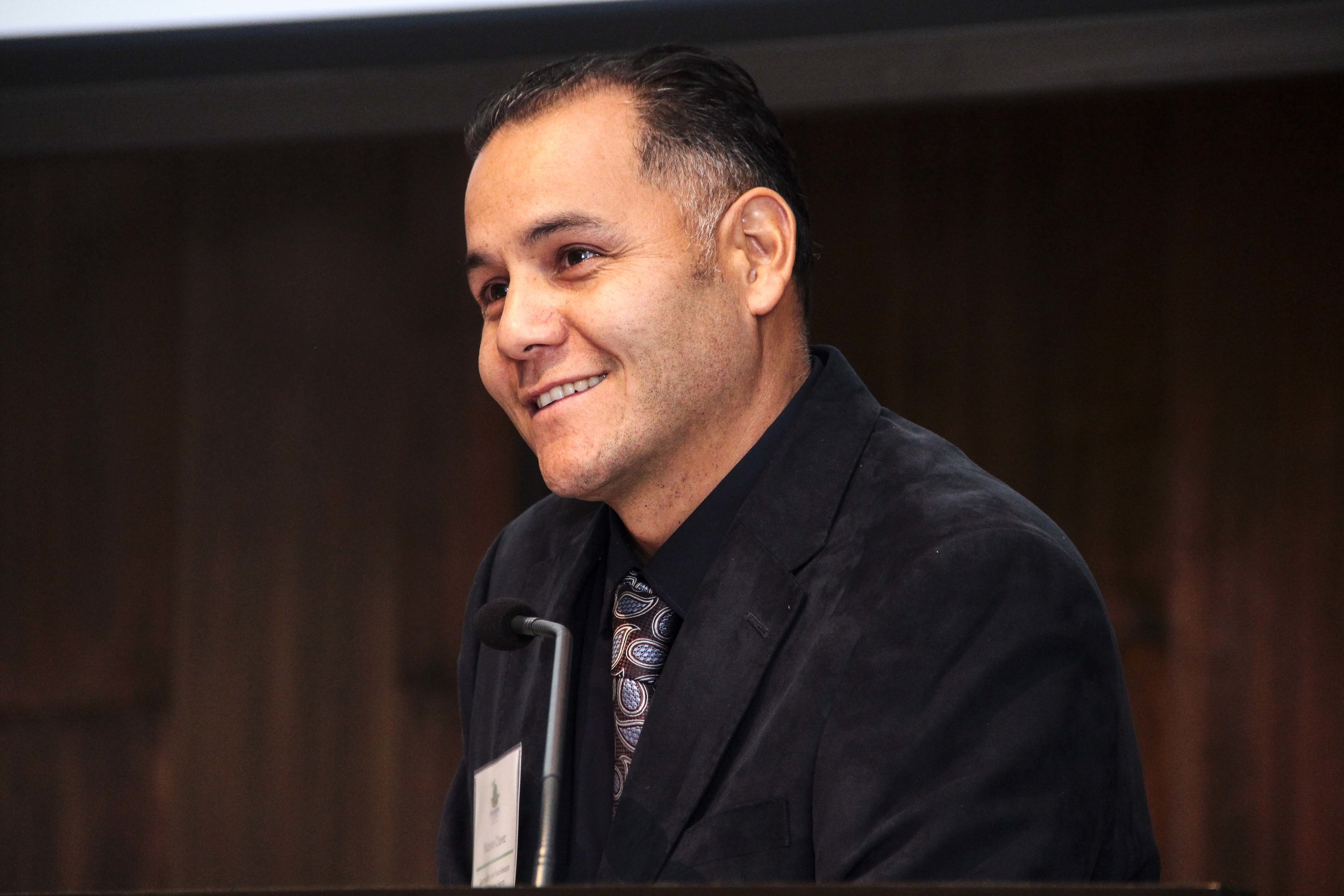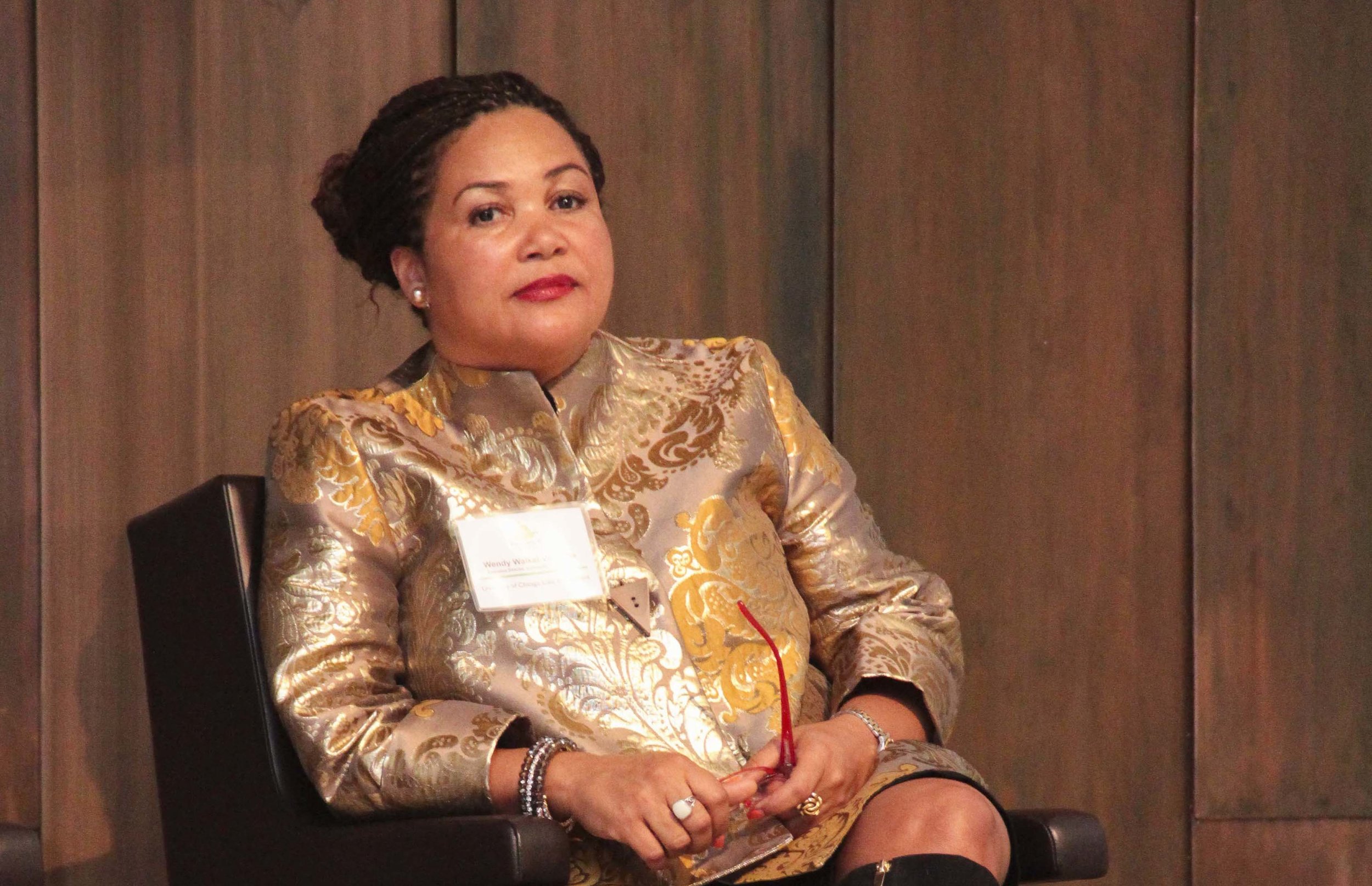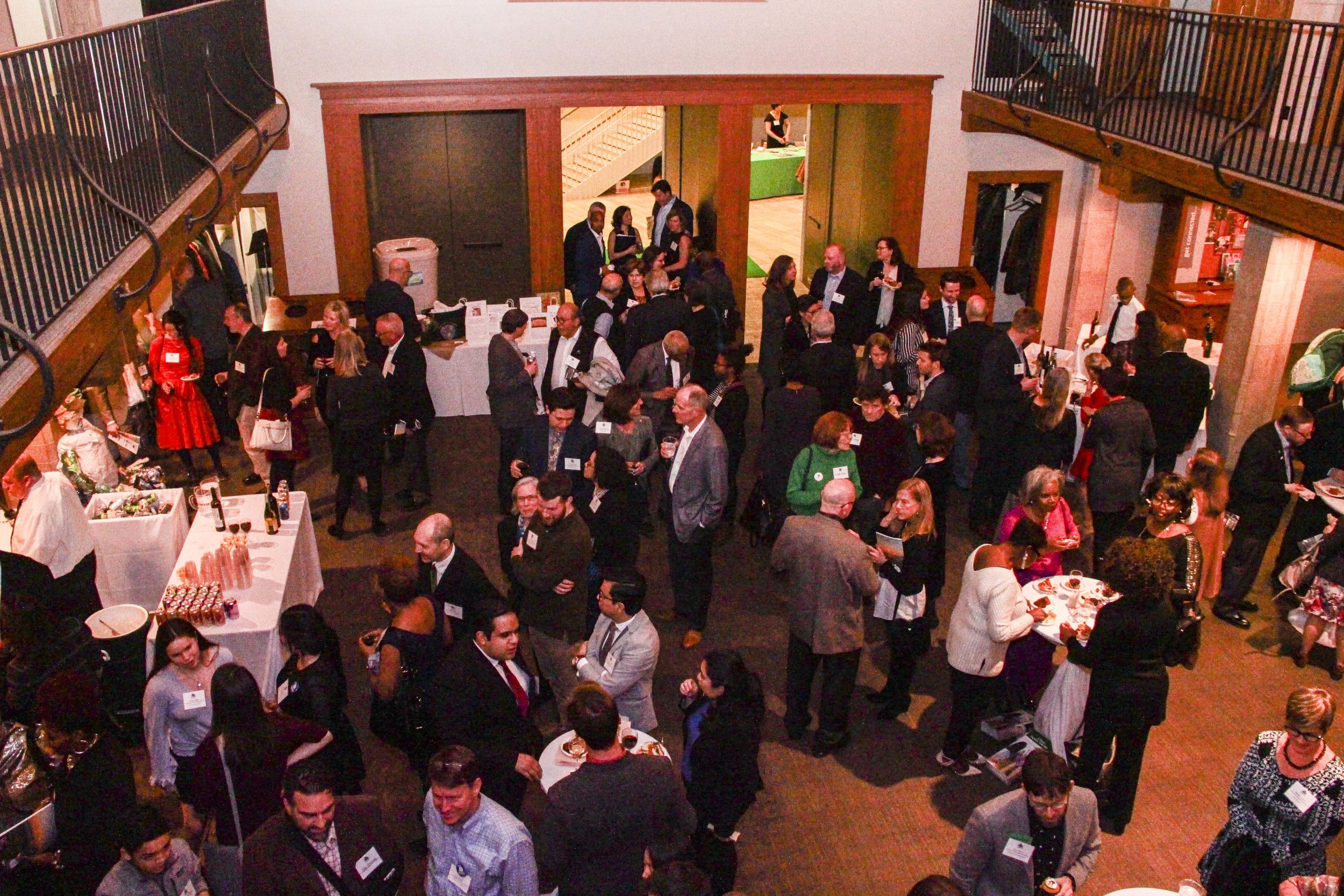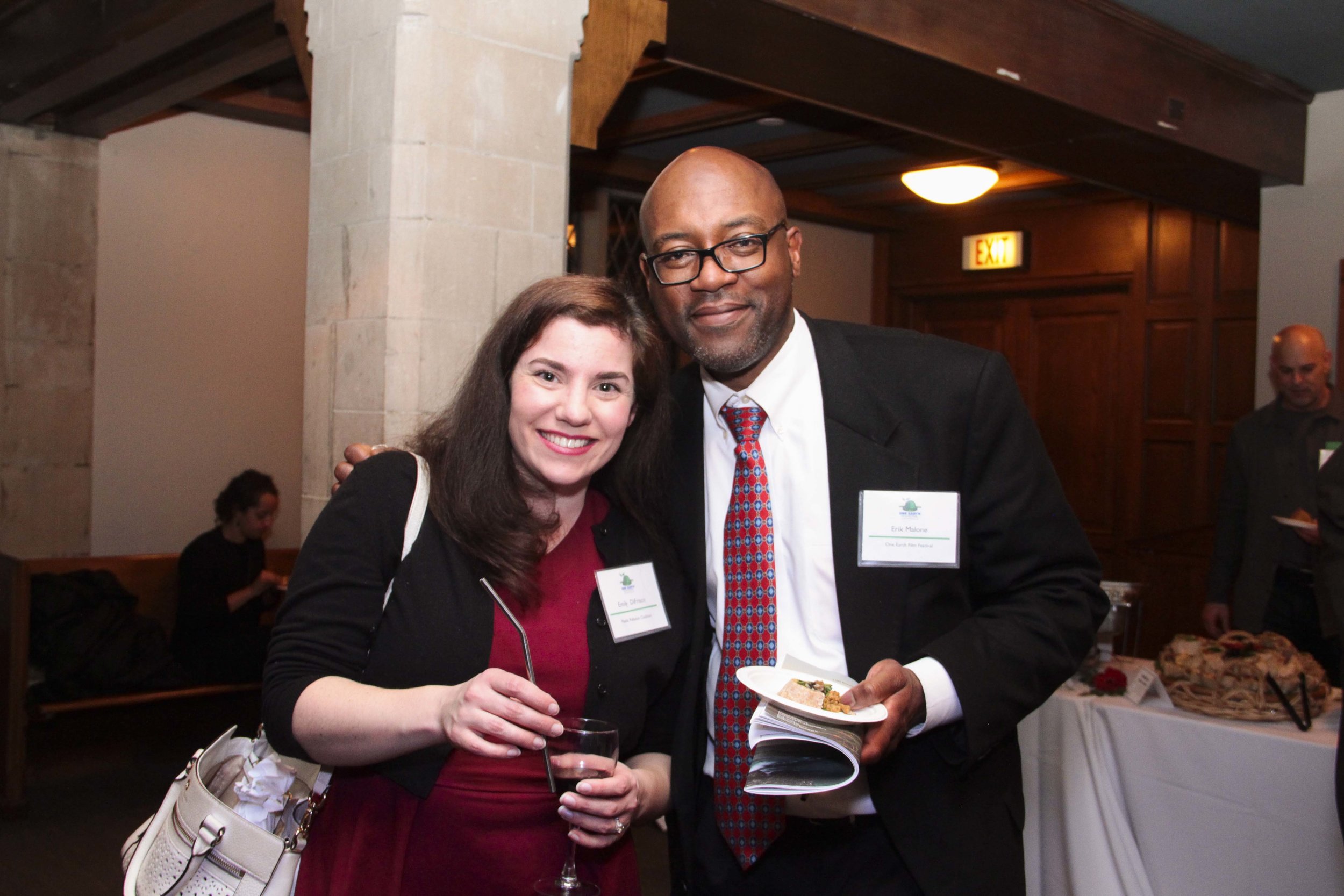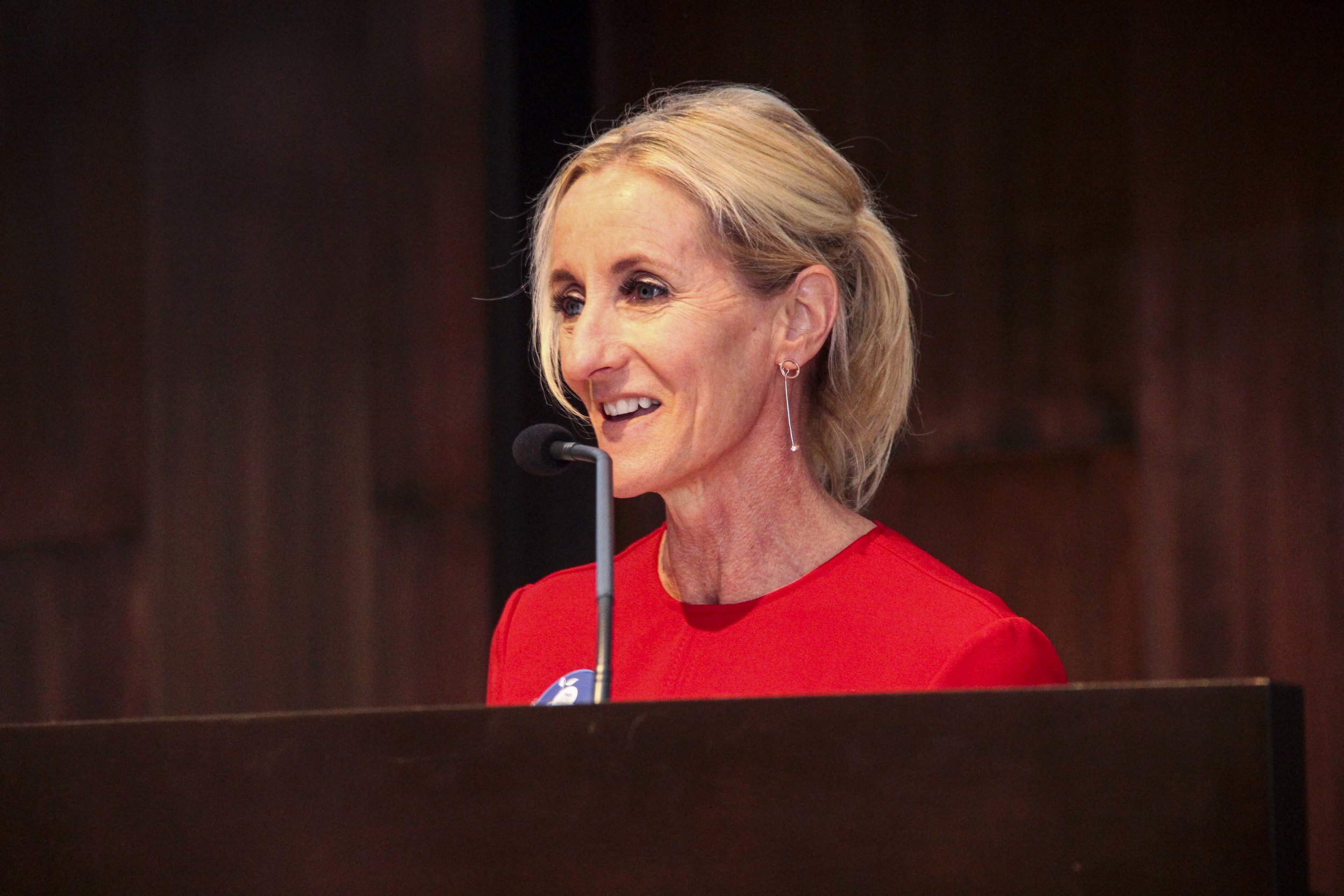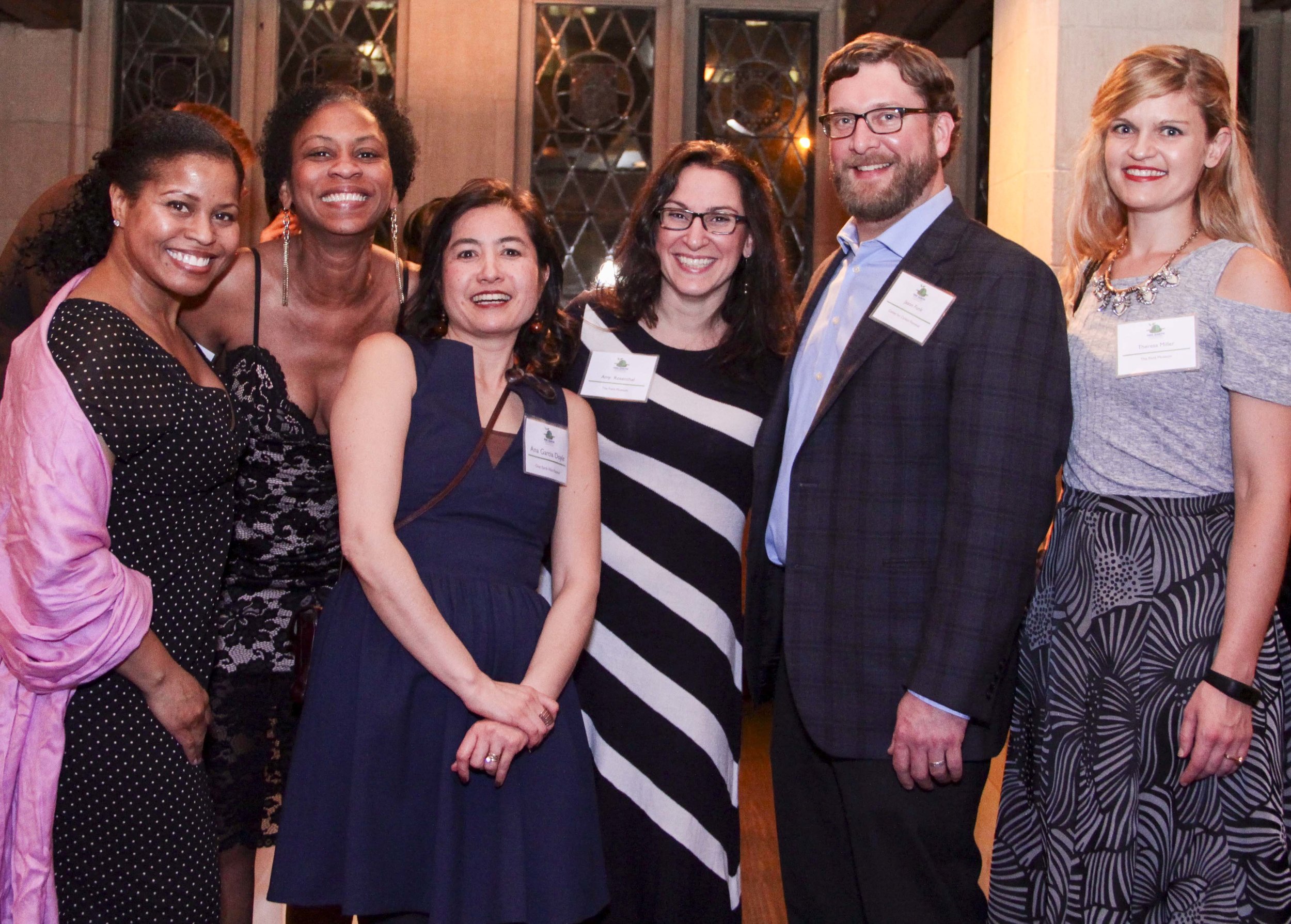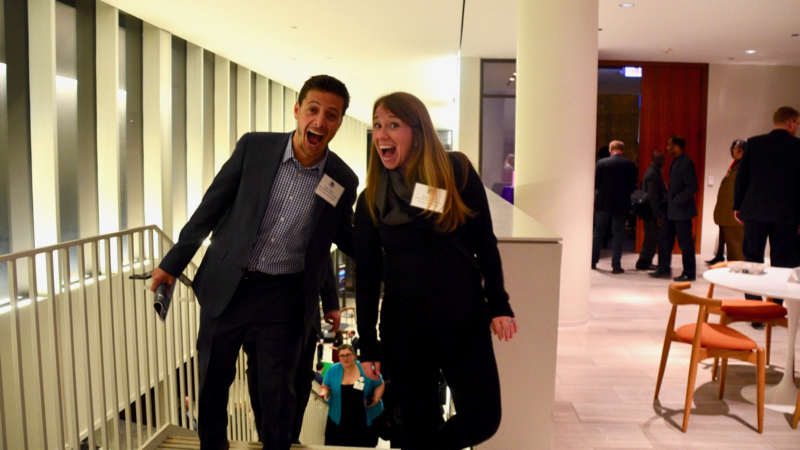One Earth Film Festival kicked off its seventh year in grand fashion, with Tesla test drives, greetings from Chicago’s mayor, a heartfelt keynote address and more than 250 guests turning out for its annual Green Carpet Gala at Fourth Presbyterian Church’s Gratz Center in downtown Chicago.
The March 2 event, a celebration of environmental activism, drew people from across the spectrum of filmmaking, the environmental activism and faith communities, philanthropy, the government and corporate sectors, and, of course, the many volunteers who help make the festival possible.
This year’s program centered on the festival’s theme “This Is the Moment,” which calls on everyone to take action for the planet. "This Is the Moment" speaks to the collective energy seen in the groundswell of engagement and activism sweeping the country, festival director Ana Garcia Doyle said as she welcomed everyone at the beginning of the gala program.
Special gala guest Ricardo Chavez responded to the theme's call to action during his remarks. “This feels like a moment,” he said. “I was actually using that word before I was asked to come here tonight. …This is a very special moment.”
(See a video interview with Chavez by radio host Mike Nowak here or at the end of this story.)
In brief remarks, Chavez, who works as a sustainability and food advocate, alluded to growing up among those involved in the United Farm Workers movement. He is the son of Dolores Huerta, a co-founder of the first farm workers unions and a tireless advocate who led the fight for racial and labor justice alongside activist Cesar Chavez. A documentary about Huerta, “Dolores,” is being screened at multiple venues during the festival.
Ranjani Prabhakar, Energy Policy and Engagement Manager in the City of Chicago’s Mayor’s Office brought a special message from Mayor Rahm Emanuel.
“The city is happy to have partnered with the film festival, especially through the department of cultural events,” Prabhakar said. “This year’s theme, ‘This is the Moment,’ could not be more apt. And as we embrace the urgent call for environmental awareness and action with the increasing effects of climate change, we’re ready to embrace this moment.”
Prabhakar said that cities are positioned to put forth “bold and innovative initiatives that not only reduce our carbon footprint but also help develop a 21st century economy. The City of Chicago has emerged as a national leader in climate action,” she said, noting Chicago’s role in convening the North American Climate Summit last December.
Diana Ramirez asks Hawah Kasat a question. Photo by Travon Christion Printis of TcPhotography
Keynote speaker Hawah Kasat, producer of “Fly by Light” and executive director of One Common Unity, flew in from the nation’s capital to attend the gala and participate in the post-screening discussion the next day at the Chicago Public Library’s Austin branch.
Before he spoke, the audience viewed a trailer of his film, a story of hope and transformation that focuses on a group of D.C. teens who spent eight days in the mountains of West Virginia.
Kasat drew on his biography in explaining his approach to environmental sustainability, describing the contrast between two places where he’d spent the most time: a New Jersey suburb and Mumbai, India.
Going between the U.S. and India, he took note of the amount of food that's wasted in the U.S. It’s enough to “feed an entire village in India,” he declared.
Continuing he said: “More than 30 percent of available food in America is tossed into the trash. For you here in Chicago, that’s enough to fill the Sears Tower 44 times. Yet we still have children in America going to school without breakfast or going to bed hungry. With agriculture accounting for 70 percent of the water used throughout the world, food waste represents a great waste of fresh water resources. By throwing out one kilogram of beef, you’re essentially wasting 50,000 years of water.”
A teacher and author, Kasat spoke about the value of teaching life skills, saying they are just as important as other subjects.
“Because if we don’t teach how to value our own lives to our children, then why on earth would they ever value the environment around them? If a child doesn’t value their inner ecosystem and personal equity, why would they take the time to value the outer ecosystem and the environment? If you don’t understand the inter-connectedness with the environment, then for what reason would you ever take the time to recycle or reduce your energy consumption, to invest in your community to break the cycles of violence,” he said.
An integral part of the annual festival is the Young Filmmakers Contest, which this year drew a record number of submissions, 115 said, Sue Crothers, YFC co-lead and founding member. Several winners were in the audience. A few had come from out of state.
Between introducing speakers, the evening’s emcee Wendy Williams, executive director of the University of Chicago’s Office of Civic Engagement, gave a shout out to One Earth Film Festival for its expansive outreach.
“The wonderful thing about this festival is that you can see a movie anywhere in the city,” she said.
Photos by Travon Christion Printis of TcPhotography


